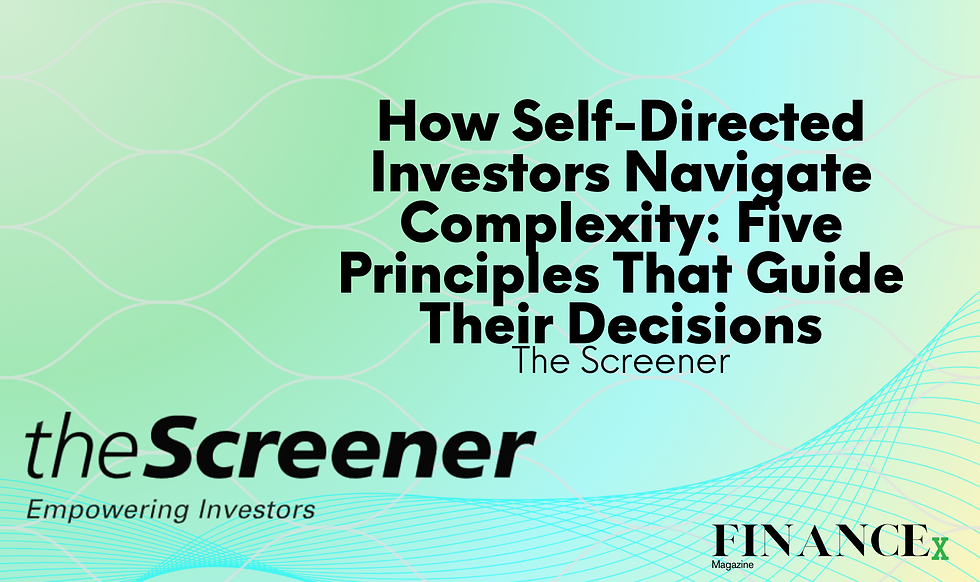How Self-Directed Investors Navigate Complexity: Five Principles That Guide Their Decisions
- rozemarijn.de.neve
- Sep 23
- 3 min read

The rise of self-directed investing has reshaped how individuals engage with financial markets. With access to real-time platforms and a wealth of tools, more investors than ever are taking the wheel themselves, managing portfolios, timing entries and exits, and digging into fundamentals. But in this age of data abundance, knowing what to act on is as important as knowing how to act.
To stay grounded, successful self-directed investors rely on a few essential principles: North Stars that guide their behaviour in the face of volatility, noise, and short-term temptation.
Here are five of those decision-making anchors and why smart data practices, not just smart dashboards, are crucial in making them work.
1. Look Beyond the Price
At first glance, price seems to tell the full story. But seasoned investors know that every price movement needs interpretation. What looks like a sharp gain or drop might be the result of a market event, not a change in value.
The lesson? Numbers are not narratives. Investors who want to make clear-headed decisions look beyond raw figures to understand why a stock is behaving the way it is.
2. Simplicity, Not Oversimplification
A clean interface is valuable, but only when it enhances rather than hides the complexity behind an investment decision. Platforms often pride themselves on ease of use, but experienced investors know to ask: what’s being removed for the sake of clarity?
Self-directed investors seek tools that can surface the key drivers without stripping out nuance. They want dashboards that support thinking, not just clicking. When simplicity becomes a layer over quality analytics instead of a substitute for them, investors get the best of both worlds.
3. Timeliness Isn’t the Same as Accuracy
Having access to the most recent data is valuable, but only if that data is actually correct and complete. Timeliness alone can mislead, especially if platforms fail to account for important market actions like dividend payouts, splits, or reclassifications.
A technically “live” data feed that hasn’t corrected for these events can result in flawed ratios and skewed charts. The investors who understand this risk seek out platforms that don’t just refresh data, but that review and refine it.
4. Momentum Without Context Can Be Misleading
Technical indicators like moving averages, MACD, or RSI are go-to tools for many self-directed investors. But these metrics are only as reliable as the assumptions behind them.
Take dividend payouts, for example. When a company pays a 5 percent dividend, its stock price drops accordingly. Yet most technical systems still interpret that drop as a sign of declining momentum. That’s not just misleading, it can trigger incorrect buy or sell signals and distort measures like volatility and beta.
theScreener is one of few provider that adjusts its technical indicators to account for dividend effects. Instead of accepting price drops at face value, they reframe the data to reflect what’s really happening, helping investors see more clearly.
5. Framework First, Tools Second
The best investors think in terms of systems. They know what they’re trying to achieve and choose tools that fit those goals rather than reacting to every new signal a platform flashes at them.
They value platforms and data providers that support structured thinking. That includes quality analytics, a consistent update rhythm, and methodologies that align with their strategy, whether that’s long-term value investing or tactical trading.
Closing Thoughts: It’s the Thinking That Matters
Self-directed investing is empowering, but it also places the burden of interpretation squarely on the individual. And while no system guarantees results, having the right structure in place, both in mindset and data, can make all the difference.
In this environment, it’s not the flashiest charts that win. It’s the platforms and providers that quietly ensure their data tells the full story, even when that means accounting for the small but significant details most others ignore.
.png)


